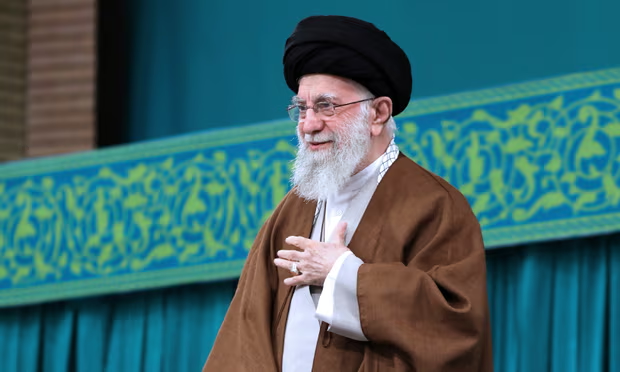The Impact of Israeli Airstrikes on Iran’s Regional Relations
Israeli airstrikes have prompted Iran to reevaluate its regional relations and military strategies. With a focus on diplomacy and potential military action, Iranian leaders are weighing their options. The response could influence Iran’s international standing and its relationships with neighboring countries.
Iran’s leadership is currently considering its response to the recent Israeli airstrikes. The country has requested a meeting of the UN Security Council to discuss the situation.
Iranian President Masoud Pezeshkian stated that while Tehran does not seek war, it will respond “appropriately” to Israel’s actions. “We do not seek war, but we will defend the rights of our nation and country,” he said during a cabinet meeting on Sunday. He emphasized that an appropriate response would be given to the “aggression of the Zionist regime.”
It remains unclear whether Pezeshkian was suggesting a direct military response or if Iran might intensify its support for regional allies like Hezbollah, or pursue diplomatic measures following the airstrikes.
His comments come amid discussions in Iran about whether the limited nature of the Israeli attack warrants a military response, and whether inaction would portray Iran as weak.
The United States has expressed concern that ongoing retaliatory strikes between the major military powers in the Middle East could escalate into a full-scale regional war.
In his first response to the attack, Iran’s Supreme Leader Ayatollah Ali Khamenei said the “evil committed by the Zionist regime” should not be underestimated or exaggerated. Khamenei asserted that Iran’s power needs to be demonstrated to Israel, stating that it is up to the authorities to determine how to showcase the strength and will of the Iranian people to the Israeli regime.
His remarks suggest that an immediate military response is not planned, as Iran weighs its options.
After the attack, Tehran downplayed the damage caused and President Joe Biden urged for de-escalation.
Iran’s Foreign Minister Abbas Araghchi condemned the Israeli strikes, which were launched in retaliation for a series of ballistic missiles fired by Iran earlier this month. He called for an emergency meeting of the UN Security Council on Monday, stating, “The Israeli regime’s actions constitute a grave threat to international peace and security and further destabilize an already fragile region.”
In a letter to the 15-member council, Araghchi asserted that Iran reserves the right to respond to these “criminal attacks” in accordance with international law.
Israeli Prime Minister Benjamin Netanyahu claimed in a speech that the air force targeted sites across Iran. “We hit hard Iran’s defense capabilities and its ability to produce missiles aimed at us. The attack was precise and powerful, achieving all its objectives,” he stated.
According to unnamed officials cited by the New York Times, the Israeli strikes destroyed air defense systems that were meant to protect critical oil, petrochemical refineries, and a large gas field. The air defenses targeted included those near the Bandar Imam Khomeini petrochemical complex and its adjoining port.
Earlier, President Pezeshkian had expressed condolences for the loss of four Iranian soldiers in the Israeli attack. He stated, “Enemies of Iran should know that these brave individuals stand fearlessly in defense of their homeland and will respond intelligently to any foolishness.”
Javad Zarif, a former foreign minister and current strategic advisor to the government, did not threaten retaliation directly. Instead, he urged the West to abandon its outdated approach and condemn Israel’s acts of aggression. He called for joint efforts to address issues in Palestine, Gaza, and Lebanon, highlighting the need for recognizing Iran’s commitment to peace.
Iran’s mission to the UN, often used to relay messages to the West, accused the US of complicity in the attack, as Israeli warplanes allegedly operated from Iraqi airspace. They stated, “Iraqi airspace is under the occupation, command, and control of the US military. Therefore, US complicity in this crime is certain.”
The mission has also written to the UN Security Council to accuse Israel of violating Iranian sovereignty.
Araghchi noted, “The truth is evident: without America, Israel lacks significant power in the region.” He referred to the reactions from various countries in the region condemning the Israeli attack, stating, “Since yesterday, we have received numerous messages and statements condemning the attack from different countries, which is truly remarkable.”
Iran must carefully consider the potential diplomatic repercussions of further military action, especially in light of its improving relations with Arab nations, the strain on its struggling economy, and the possibility that another Israeli strike could cause even more damage than the recent attacks.
Public support for Iran’s costly foreign policy is fragile, according to recent polling conducted by the Middle East Institute.
This article was rewritten by JournosNews.com based on verified reporting from trusted sources. The content has been independently reviewed, fact-checked, and edited for accuracy, neutrality, tone, and global readability in accordance with Google News and AdSense standards.
All opinions, quotes, or statements from contributors, experts, or sourced organizations do not necessarily reflect the views of JournosNews.com. JournosNews.com maintains full editorial independence from any external funders, sponsors, or organizations.
Stay informed with JournosNews.com — your trusted source for verified global reporting and in-depth analysis. Follow us on Google News, BlueSky, and X for real-time updates.













